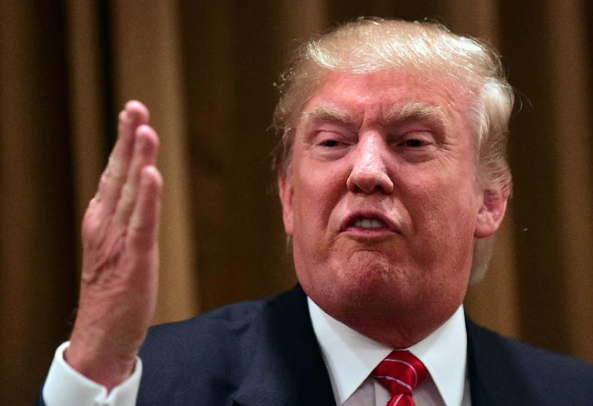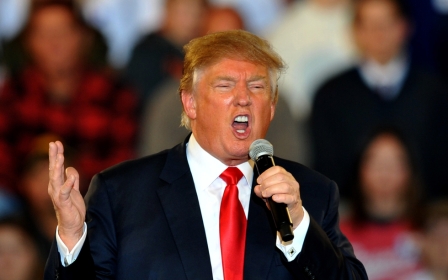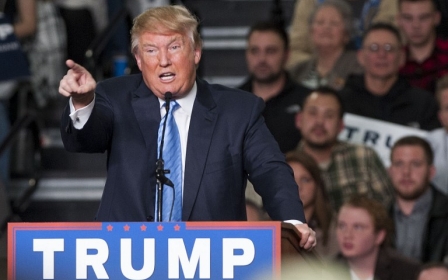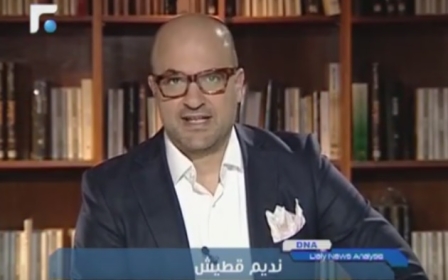Muslim Americans concerned but determined after Trump's comments

DEARBORN, United States - Donald Trump's call for banning Muslims from entering the United States has earned the condemnation of politicians from across the political spectrum. The Republican presidential candidate's statement resonated strongly with Muslim Americans, raising concerns about their communities' safety and civil rights.
Arab and Muslim leaders in the US state of Michigan said they fear Trump's rhetoric will heighten Islamophobic sentiments and spark hate crimes.
Dearborn, Michigan, a Detroit suburb of 95,000 people, is dubbed the capital of Arab America. It is home to one of the largest concentrations of Arabs outside the Middle East.
Many of the city's storefronts feature Arabic signs. Its large mosques and numerous of Middle Eastern shops and restaurants have made it a target for anti-Muslim protests and false accusations of being under Sharia law.
"Dearborn, MI, has the highest Muslim population in the United Sates. Let's f**k that place up and send a message to ISIS. We're coming," a Grand Rapids woman tweeted last month after the Paris terrorist attacks.
Mike Sareini, a Lebanese American Muslim councilman in Dearborn, said residents should not be scared.
"Our police and institutions are well-equipped to deal with these hiccups," Sareini told the Middle East Eye. "I have more faith in the American people."
Sareini said he is confident of Dearborn's ability to withstand threats and misconceptions.
He described Trump's comments as "showmanship".
The councilman, whose brother is a Lt. commander in the US Navy, said questioning the loyalty of Muslim Americans stems from ignorance.
"ISIS (an acronym for the Islamic State [IS] group) is killing more Muslims than anybody else. They're hijacking the religion," he said. "What we have to do is highlight our people. We are a part of the American fabric."
Saad Almasmari, a recently elected Yemeni American councilman in the city of Hamtramck, said Trump's comments aim to drive a wedge between the different components of American society.
Hamtramck, a town of 22,000 people located within Detroit, made international headlines after becoming the first US municipality to elect a Muslim majority city council.
The council serves as the legislative body of the city. In Hamtramck four out of six council members are Muslim.
"Trump is spreading his propaganda to divide us and get votes," Almasmari said.
Amid media scrutiny, several demonstrations denouncing extremism took place in Hamtramck. On Friday, hundreds of city residents protested against Trump's plan.
"Muslims and non-Muslims live together in harmony and safety here," Almasmari said. "The Muslim community has nothing to fear. We haven't done anything wrong."
Urging caution
Dawud Walid, the executive director of the Council on American Islamic Relations (CAIR) in Michigan, said Trump's rationale reflects a broader sentiment in the political environment.
"What Donald Trump has done is to expose the deep seated hatred that exists, not just for Muslims, but for people of colour in general in this society," Walid said.
Over the past week, several Muslims have been assaulted in suspected hate crimes. A served pig's head was thrown in front of a mosque in Philadelphia. A Sikh temple in California was vandalised with anti-Muslim graffiti. The national headquarters of CAIR in Washington, DC was evacuated after receiving an envelope with a suspicious substance.
"We receive hate messages daily because of our advocacy on behalf of the American Muslim community," CAIR tweeted after the incident. "It's frightening to experience the hate manifest itself to such a real level."
Walid said these events are linked to Trump's comments because his followers think they have a green light to assault the groups he attacks.
Walid urged Muslims in and around Detroit to be on alert.
"I think that Muslims in southeast Michigan should go about their daily affairs and not succumb to fear; succumbing to fear is a victory for bigots," he said. "That doesn't mean not taking certain safety precautions, in particular in Hamtramck, Dearborn and Detroit."
Walid asked women who wear the hijab to be especially careful because they are the "most visible" sign of Muslims' presence in the area.
Ali Baleed Almaklani, the executive director of the Yemeni American Benevolent Association, said Arab and Muslim Americans feel pain when politicians attack them because of their ethnicity and religion.
Almaklani said Trump's comments go against the American values of tolerance and diversity.
"We are good Americans," he told Middle East Eye. "We love this country. We immigrated here like Trump's forefathers. We serve in the army. We fight terrorism, and we are victims of terrorism."
Almaklani said despite the Republican candidate's surging numbers in public opinion polls, more Americans are coming to the defense of Muslims.
"We need to reach out to groups outside our community and express our gratitude to those who stand by us," he said.
Real candidate
Ronald Stockton, a political science professor at the University of Michigan-Dearborn, said he now recognises that Trump has a solid base of supporters after initially dismissing his campaign.
"Those of us who study public opinion and voting patterns predicted that Trump would fade away, that this was a symbolic campaign," Stockton said. "But he has made many mistakes that haven't hurt him. He has attacked women, African Americans, Mexicans and Muslims. But he's not fading. He is a real candidate, and he has a chance to win the nomination."
The professor explained that Trump's supporters are angry with the political establishment for good reasons and see him as a frank outsider to politics.
Stockton said it is hard to determine whether the rise of hate crimes against Muslims over the past week is linked to the Republican candidate's comments or the San Bernardino shooting, which killed 14 people.
He said Trump could be contributing to the increase of anti-Muslim feelings.
Stockton explained that people who have sentiments that are out of step with the mainstream feel empowered to express their opinions after a prominent person shows similar views.
Osama Siblani, the publisher of The Arab American News, a biweekly newspaper based in Dearborn, said Trump's popularity is worrisome.
He called on the National Republican Committee should ask the real estate mogul to withdraw his candidacy.
"He is a disgrace to American values," Siblani said of Trump.
'The silent majority'
The Islamic Center of America (ICA), the largest mosque in the country, has been a target for anti-Muslim protests. In 2011, a California man was charged with terrorism for trying to blow up the center.
But Kassem Allie, the ICA's executive administrator, said the mosque has garnered unprecedented support since Trump's Muslim-ban proposal.
Allie said he has received several encouraging emails, including one from an army veteran. An Ann Arbor resident drove 40 miles to drop off flowers at the mosque.
"The silent majority is starting to speak out against the hatred," Allie told MEE.
But worries about hate-motivated attacks persist. A security car is constantly parked in front of the mosque.
“We’re not scared, but we’re taking more precautions,” Allie said. “The members who come here are very concerned.”
He added that Trump’s comments do not represent American society.
“His agenda is to encourage support for himself through fear and bigotry, through sensationalism,” Allie said. “It seems like he is trying to outdo himself every week with saying something more outrageous than the previous week.”
The concerns are not disrupting the flow of in Michigan's Muslim communities, however. Residents are going about their business. Mosques are holding their usual services. Streets are crowded. Stores and shoppers are gearing up for the holiday season.
Huda Ebeed, who works at a clothing store in Dearborn, said Trump does not alarm her.
"My American passport is just like his," she said.
New MEE newsletter: Jerusalem Dispatch
Sign up to get the latest insights and analysis on Israel-Palestine, alongside Turkey Unpacked and other MEE newsletters
Middle East Eye delivers independent and unrivalled coverage and analysis of the Middle East, North Africa and beyond. To learn more about republishing this content and the associated fees, please fill out this form. More about MEE can be found here.




